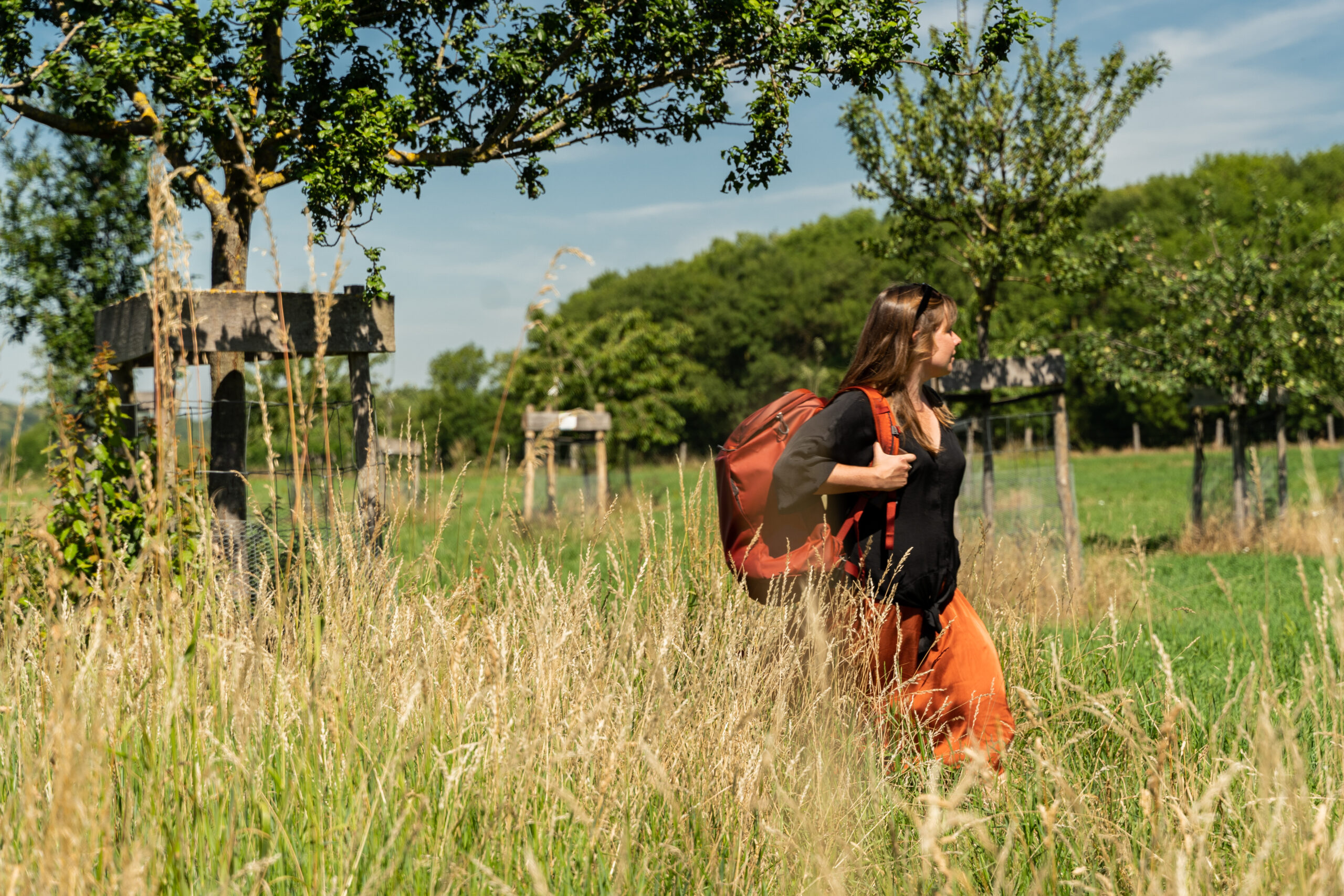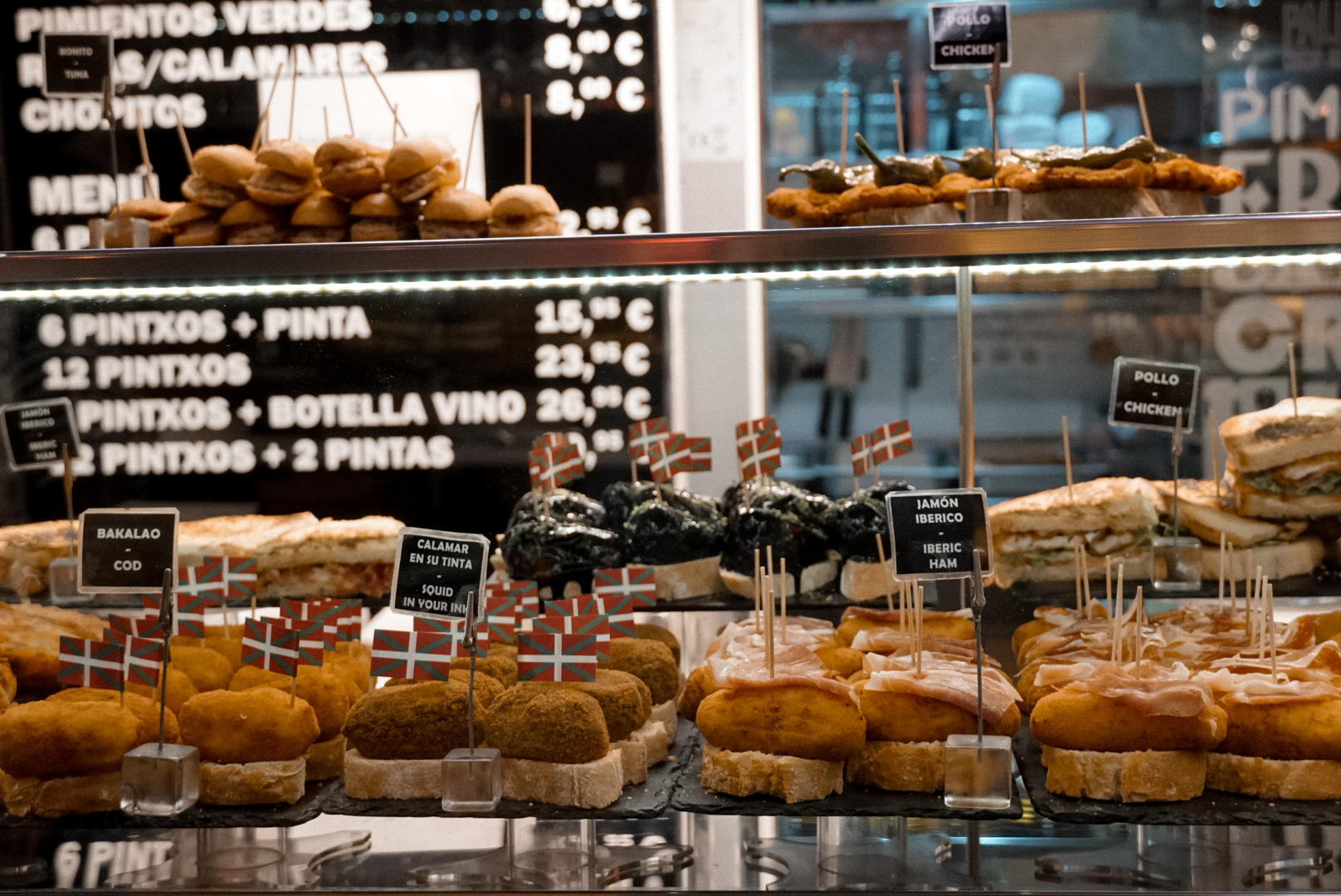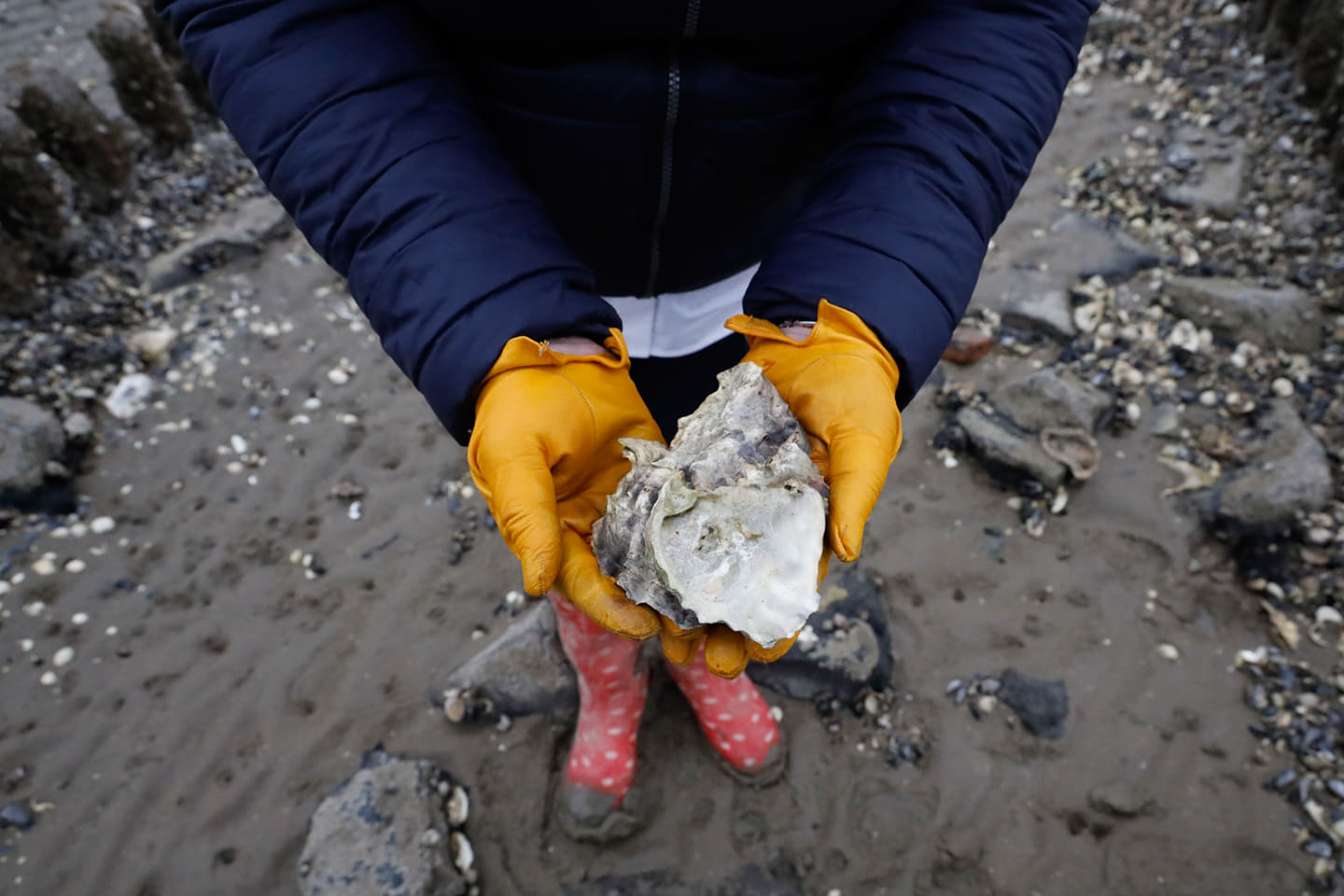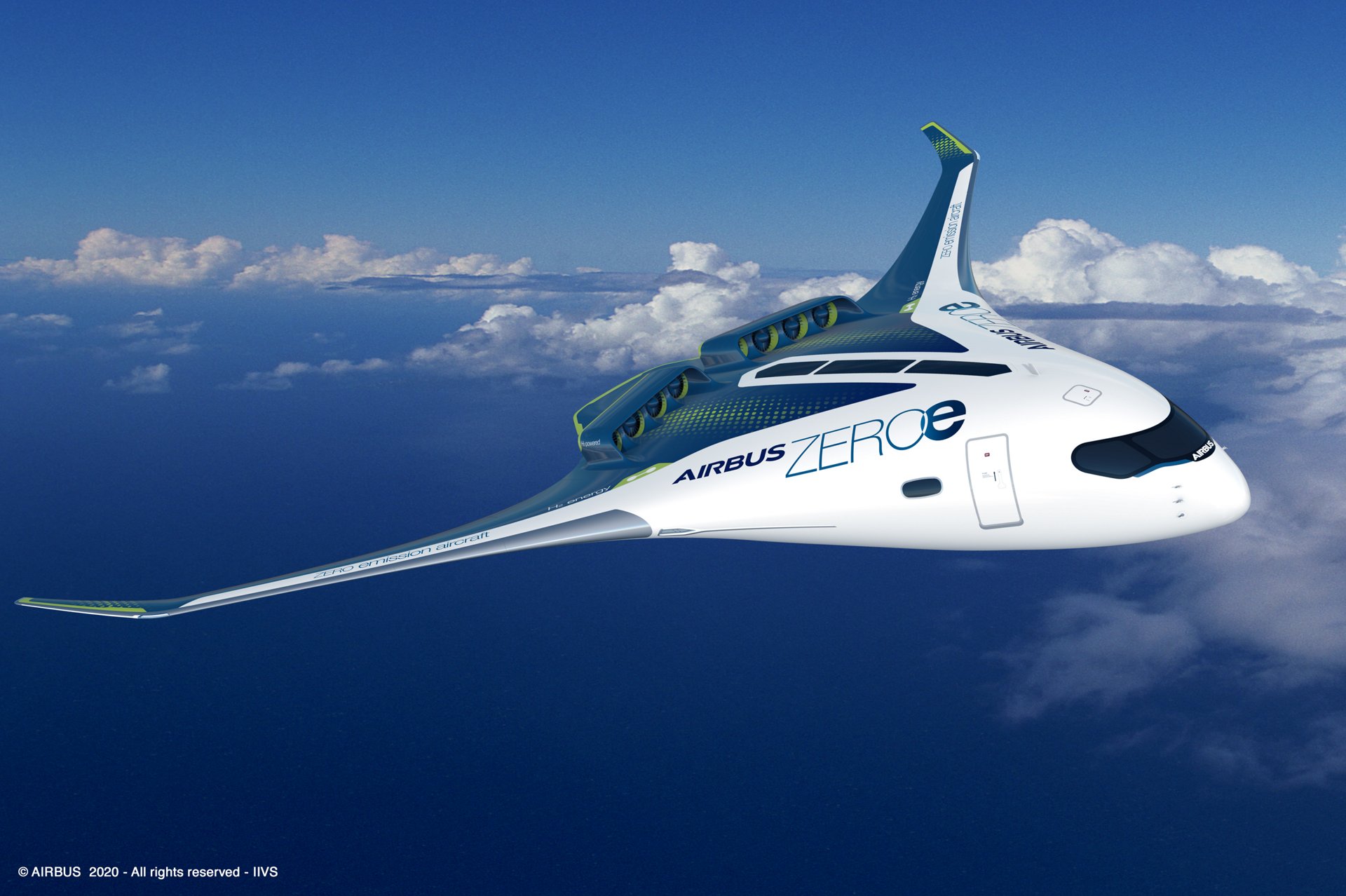
Will Airbus Reach New Heights With Green Airplanes?
Air travel, which was rapidly on the rise prior to the pandemic, is notorious for its high carbon dioxide emissions. As a former airline pilot, I know it is not unusual to use up 200-400 kg of fuel in the few minutes that we taxi from the gate to the runway. How, then, can we believe that green airplanes will cease to be mere science fiction? Can sustainable air travel really become a reality in the foreseeable future?
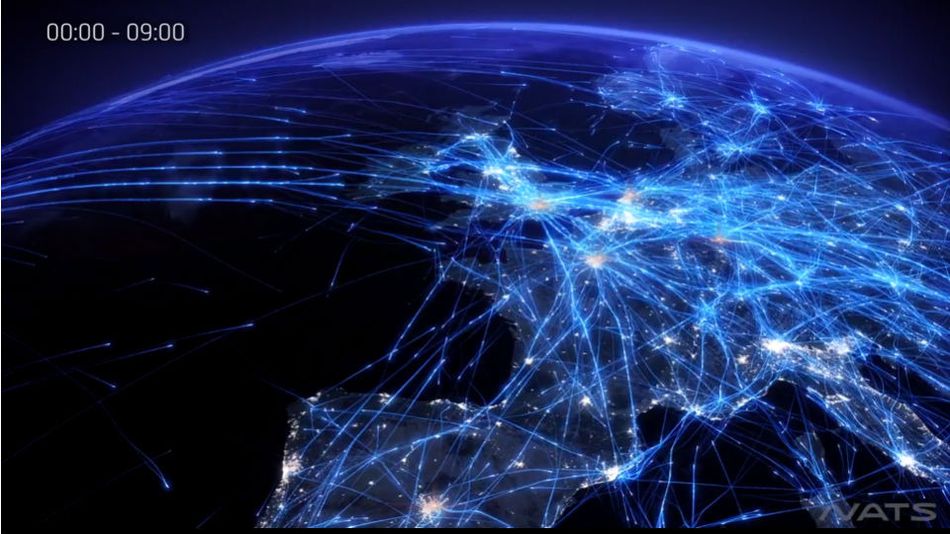
The rise of international air travel
The world is becoming increasingly concerned with the impact of CO2 emissions on our climate and environment. Aviation on its own is responsible for 2-3% of annual carbon dioxide emissions from human activities.
After World War II, the arrival of the jet engine sparked a huge boom in civil aviation. This industry’s growth has continued despite a series of crises since 2000, including the 9-11 terrorist attacks and the Icelandic ash cloud.
“In a little over a century, our industry has gone from learning to fly, to learning to fly faster, learning to fly further, learning to fly heavier planes, and now to having 100,000 plus commercial flights occurring around the world each and every day – representing over 400 departures per hour!”
International Civil Aviation Organisation
Sustainable travel strategies
As the world began to turn its attention to sustainability, airlines too started implementing various strategies. For instance, they replaced the heaps of paper manuals and in-flight documents with a paperless flight deck containing tablets and iPads. Since the rise of low cost airlines, reducing fuel consumption is always something in focus as it is also an important factor to reduce costs. Boeing and Airbus tweaked the design of the winglets to improve aerodynamic characteristics and make aircrafts more fuel efficient. More recently, several airlines have incorporated Airbus NEOs in their fleet. A NEO (or New Engine Option) comes with larger, more powerful engines that are more efficient and burn less fuel.
More ambitious plans include experimenting with clean technology. The Solar Impulse was ground-breaking. It was the very first flight around the world without a drop of fuel. They flew 40,000 km on solar energy.
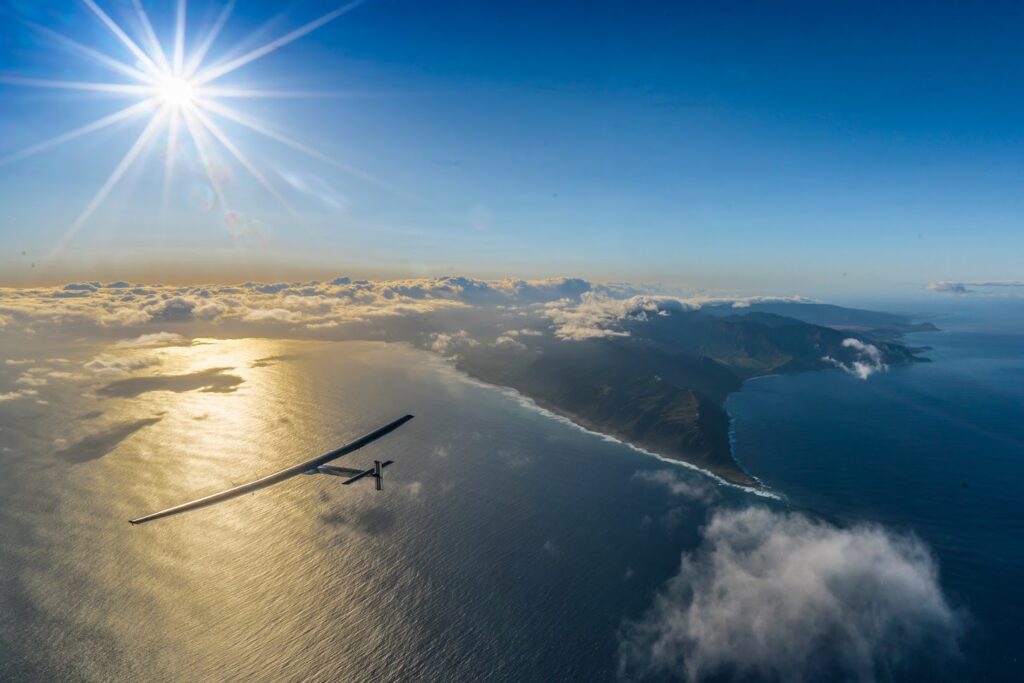
Hydrogen-powered airplanes
Today, when it comes to the massive challenge of decarbonising aviation, Airbus is taking the lead. They aim to produce an entirely zero-emission plane by 2035. In fact, their engineers have already developed three ZEROe concepts in which jet fuel is replaced with liquid hydrogen. This is promising. Hydrogen is a promising renewable energy source. It is abundant and contains almost thrice as much energy as aircraft kerosene. Additionally, gas turbine engines running on hydrogen produce no CO2 and 80% less nitrogen.
However, although there are many benefits to using hydrogen, airport infrastructure will have to change and the transition will take time.
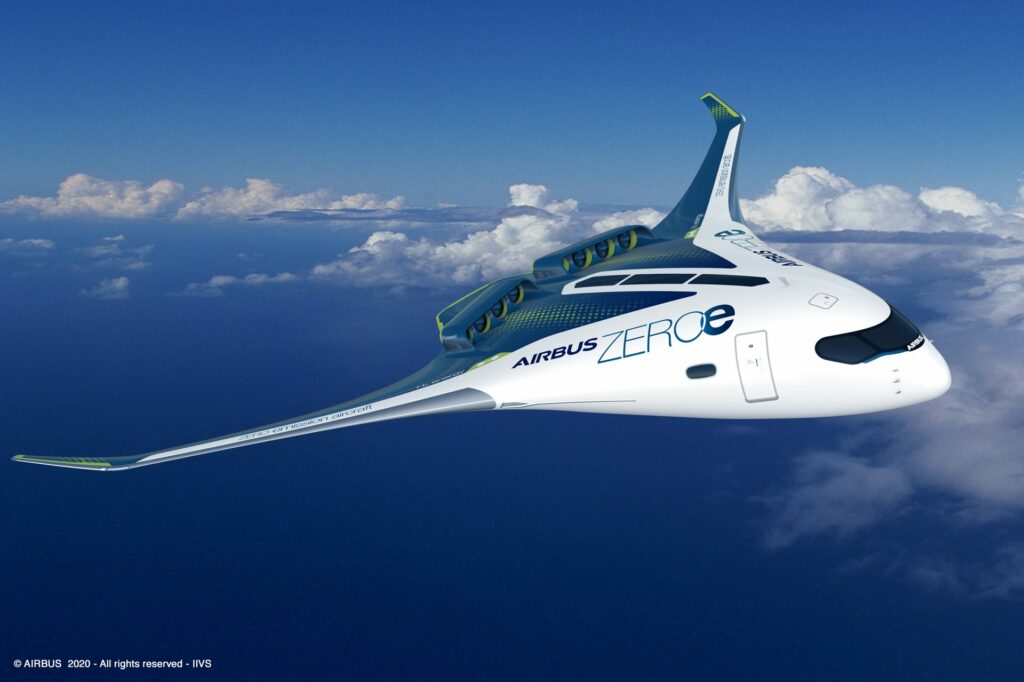
A new future?
One thing is certain: an airplane powered by hydrogen and capable of carrying passengers is no longer the stuff of fiction. In September 2020, a six-seater Piper M-class aircraft completed its maiden flight in Germany using hydrogen fuel-cell technology.
Aviation is volatile but let’s not forget that it has overcome many turbulent times in the past. Yes, Covid-19 has floored the industry and many airlines may stay grounded forever. However, more and more people are relocating to cities. So, the demand for international air travel might very well inspire a surge of new air transport companies.
In my opinion, it is only a matter of time until thousands of airplanes return to the skies. The real question is whether we can take advantage of this unique opportunity to end an environmentally unfriendly era and begin a brand new, more sustainable one.
About Travel Rebel Dorien
Dorien is a professional wanderer, in all senses of the word – physically by exploring the corners of the world, either as an expat or a backpacker, and metaphorically through continuous self-development. Prior incarnations include product manager in the travel and tourism industry and airline pilot – her childhood dream! – until the pandemic sent shock waves through the aviation industry. As a person driven by passion, she believes that re-invention, whether voluntary or not, should be viewed as an opportunity and so she has now embarked on a third re-incarnation within the marketing sector. Her travel experiences so far have been a powerful source of inspiration to improve the world, to make it a kinder and more beautiful place, one trip at a time.


